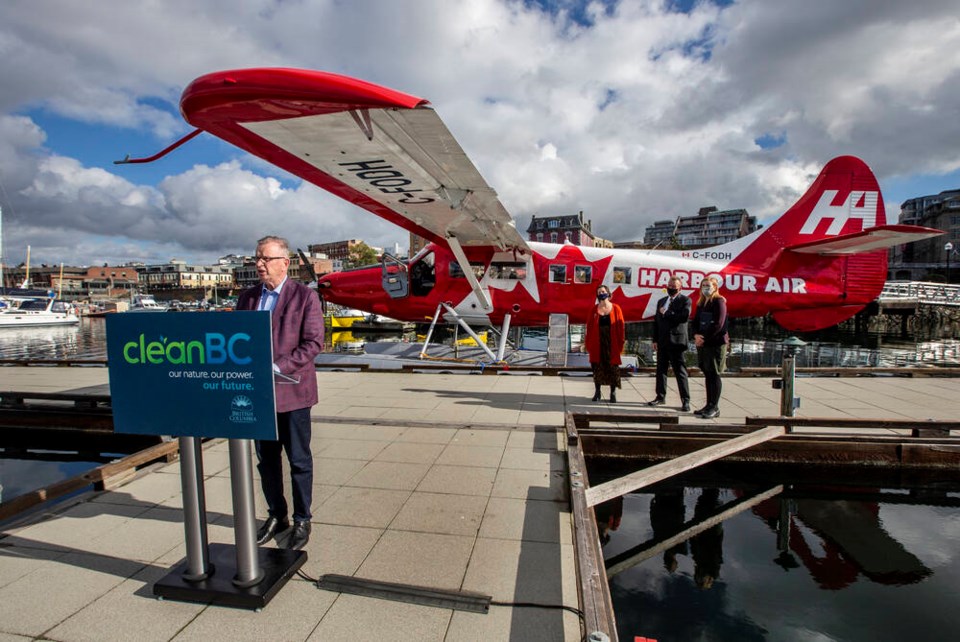A $1.6-million injection of funding from the province will spur Harbour Air on in converting its aircraft to electric motors and could result in the first-ever passenger flight in an all- electric aircraft before the end of next year.
Harbour Air president Randy Wright said the cash is key if the company is to realize its goal of converting its entire fleet from combustion engines to electric.
“This funding is imperative to help us do that and show other companies across all sectors how investing in innovation can result in commercial success,” he said.
Wright also said they have found a new Swiss battery producer to partner with and, given the pace of technological improvement of batteries, Harbour Air expects it could have the first passenger flight before the end of 2022.
In December 2019, Harbour Air chief executive Greg McDougall flew a 750-horse-power, electric-powered Harbour Air float plane over the Fraser River.
The short test flight of a six-passenger, DHC-2 de Havilland Beaver from Harbour Air’s terminal in Richmond was the world’s first all-electric commercial aircraft flight.
It announced the electric age in aviation, said Minister of Energy, Mines and Low Carbon Innovation Bruce Ralston Friday.
“It’s exciting to see B.C. companies like Harbour Air helping us reach our Clean B.C. goals by reducing our reliance on fossil fuels,” he said.
The $1.6 million announced Friday is part of $8.18 million of new funding from the CleanBC Go Electric Advanced Research and Commercialization program.
The money is to be split among 18 companies.
“Harbour Air is decarbonizing aviation and elevating the company to new altitudes as a clean-technology leader in B.C.’s transportation sector,” said Ralston. “Harbour Air’s project not only supports our emission-reduction goals, but also creates good-paying clean-tech jobs.”
It is expected the work Harbour Air is currently doing to refine the electric motor installation and battery systems to allow the aircraft to carry passengers will create 21 full-time jobs.
Wright, who noted the cost of conversion of each aircraft is about $4 million, said they are at work on their 2.0-version of the electric plane with work on a second de Havilland Beaver.
“It’s all about batteries — power and how light they are and that’s getting better and better,” he said. “We’re turning our focus from reduction of emissions to zero emissions.”
Wright said when their conversion processes and aircraft are certified by Transport Canada they will be able to speed up the pace of conversion significantly.
The CleanBC Go Electric ARC program supports B.C.’s electric vehicle sector with reliable, targeted support for research and development, commercialization and demonstration of B.C.-based EV technologies, services and products.
“By further supporting the development of the first all-electric commercial aircraft, we are solidifying our position as world leaders in innovation and using technology to change what is possible,” said Brenda Bailey, parliamentary secretary for Technology and Innovation.




